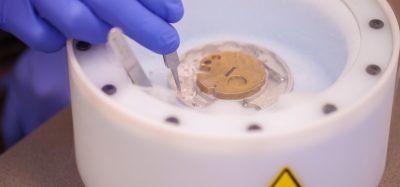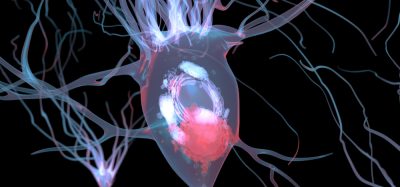Monkeypox mutations cause virus to spread rapidly, evade drugs and vaccines
Posted: 7 November 2022 | Ria Kakkad (Drug Target Review) | No comments yet
Researchers show how monkeypox mutations cause virus to replicate, spread faster.


A team of researchers at the University of Missouri, US, have identified the specific mutations in the monkeypox virus that contribute to its continued infectiousness. The findings, which were recently published in Journal of Autoimmunity, could lead to several outcomes: modified versions of existing drugs used to treat people suffering from monkeypox or the development of new drugs that account for the current mutations to increase their effectiveness at reducing symptoms and the spread of the virus.
The team analysed the DNA sequences of more 200 strains of monkeypox virus spanning multiple decades, from 1965, when the virus first started spreading, to outbreaks in the early 2000s and again in 2022.
“By doing a temporal analysis, we were able to see how the virus has evolved over time, and a key finding was the virus is now accumulating mutations specifically where drugs and antibodies from vaccines are supposed to bind,” said Shrikesh Sachdev, one of the study’s scientists. “So, the virus is getting smarter, it is able to avoid being targeted by drugs or antibodies from our body’s immune response and continue to spread to more people.”
Professor Kamlendra Singh, principal investigator of the study, has been studying virology and DNA genome replication for nearly 30 years. He said the homology, or structure, of the monkeypox virus is very similar to the vaccinia virus, which has been used as a vaccine to treat smallpox. This enabled Singh and his collaborators to create an accurate, three-dimensional computer model of the monkeypox virus proteins and identify both where the specific mutations are located and what their functions are in contributing to the virus becoming so infectious recently.
“Our focus is on looking at the specific genes involved in copying the virus genome, and monkeypox is a huge virus with approximately 200,000 DNA bases in the genome,” Singh said. “The DNA genome for monkeypox is converted into nearly 200 proteins, so it comes with all the ‘armour’ it needs to replicate, divide and continue to infect others. Viruses will make billions of copies of itself and only the fittest will survive, as the mutations help them adapt and continue to spread.”
The team examined five specific proteins while analysing the monkeypox virus strains: DNA polymerase, DNA helicase, bridging protein A22R, DNA glycosylase and G9R.
“When they sent me the data, I saw that the mutations were occurring at critical points impacting DNA genome binding, as well as where drugs and vaccine-induced antibodies are supposed to bind,” Singh said. “These factors are surely contributing to the virus’ increased infectivity. This work is important because the first step toward solving a problem is identifying where the problem is specifically occurring in the first place, and it is a team effort.”
Researchers continue to question how the monkeypox virus has evolved over time. The efficacy of current US Centers for Disease Control and Prevention-approved drugs to treat monkeypox have been suboptimal, likely because they were originally developed to treat HIV and herpes but have since received emergency use authorisation to control the recent monkeypox outbreak.
“One hypothesis is when patients were being treated for HIV and herpes with these drugs, they may have also been infected with monkeypox without knowing, and the monkeypox virus got smarter and mutated to evade the drugs,” Singh added. “Another hypothesis is the monkeypox virus may be hijacking proteins we have in our bodies and using them to become more infectious and pathogenic.”
Related topics
Antibodies, Disease Research, Drug Delivery, Genomics, Vaccine
Related conditions
monkeypox
Related organisations
University of Missouri
Related people
Professor Kamlendra Singh, Shrikesh Sachdev








